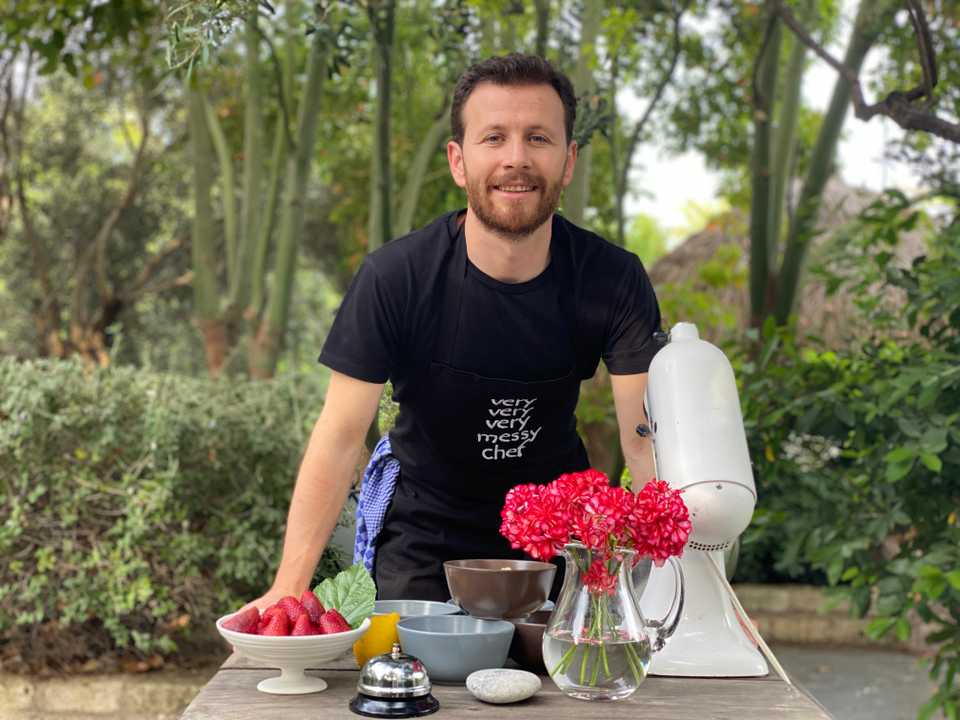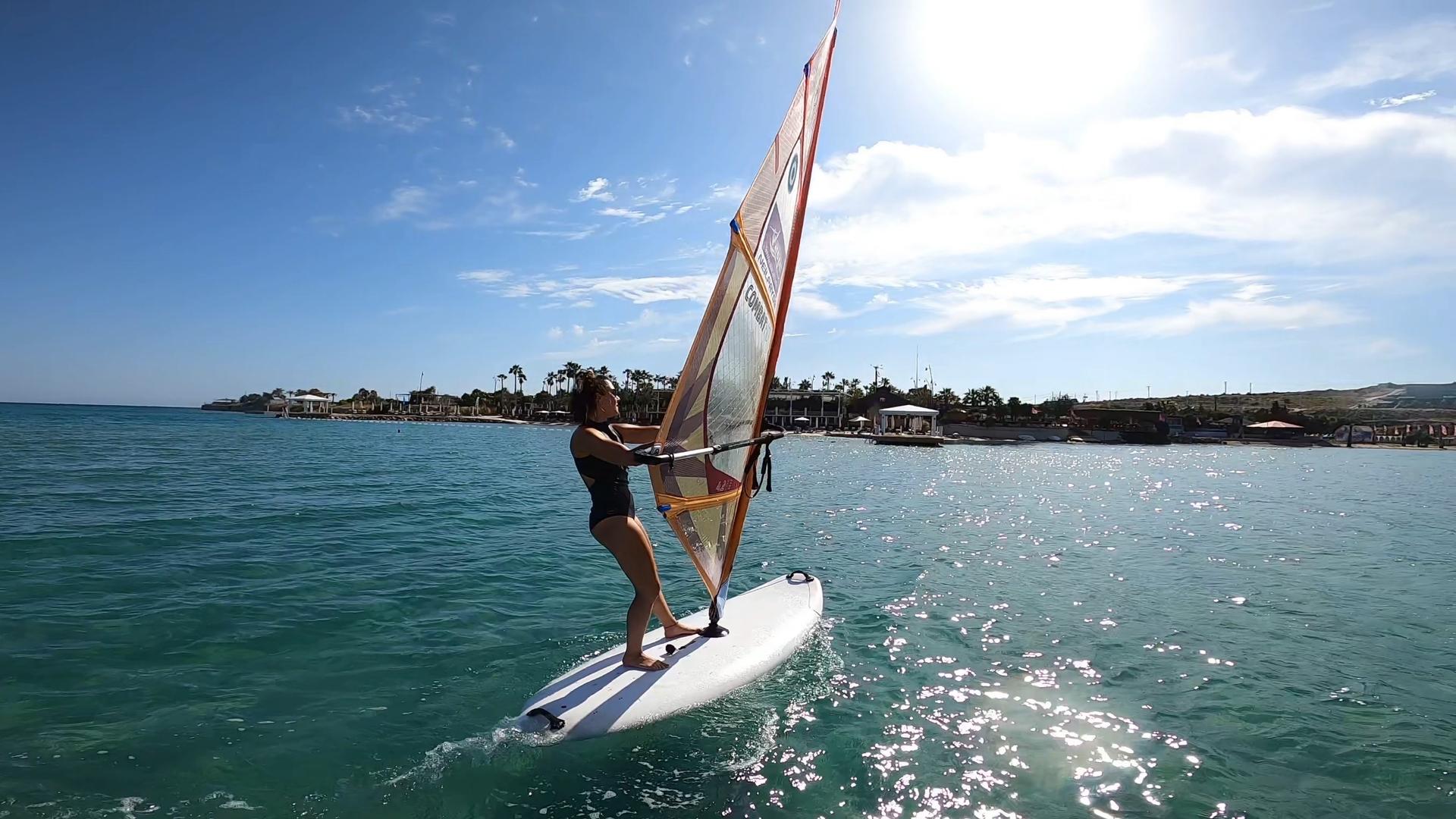“Alacati is crowded as usual,” Erdinc Demir says. Demir is the manager of Isolee Beach Club in Alacati. He has been working in Alacati for 11 years at various establishments and has lived there full time for 4-5 years.
Alacati is known for its windmills, its white stone houses, and its windy beaches ideal for wind- and kitesurfing. It is a small beach town in Cesme, a half-hour drive from Izmir on the Aegean coast.
He says the beach he now works for can easily accommodate 1000 people, but that they’re running it below capacity, with 350-400 people a day maximum.
According to Demir, when the coronavirus pandemic first broke in Turkey in March, many people decided to shelter in Alacati.
“Then,” Demir says, “coronavirus showed up here as well, and we had to have a lockdown just as the rest of the country did.”
Now that Turkey is coming out of lockdown, Demir says the town is bustling again. One main difference, he says, is where people are staying. “People are not entirely trusting of hotels,” he says, “preferring to rent houses instead.” According to Demir, house rental prices have doubled because of the demand.
Demir says that hotels have been given opportunities not given to beach clubs in order to boost their occupancy rates, such as being able to remain open during the latest lockdown when there was a university entrance exam throughout Turkey, when other establishments were not.
Demir tells TRT World that people spend more time at their houses this summer, preferring to stay in at night. He says when the lockdown was first lifted the curfew was 10pm, then it became 11pm, and now it is 12 midnight. Demir points out that up until the first week of June, there had been little to no activity in Alacati.
Demir says some establishments have opened late for the summer, and some have not opened at all. “For example,” he says, “the legendary clubs Sole & Mare and Paparazzi, that are built on wooden platforms and not beaches, have decided to remain closed.”
In past summers, clubs within town limits could stay open until 1am and those outside til 3am. Now the cutoff is midnight for both.
According to Demir, coronavirus precautions are taken seriously in Alacati town, where wearing a mask is obligatory and not wearing one is likely to result in a fine. He says he cannot say the same for the beaches.
“We have trained our staff, we have free disinfectant available, we take the temperature of everyone coming in, we ask our guests to wear a mask, but everyone seems to be much more relaxed about the coronavirus,” he says. He finds it dangerous that visitors still demand valet service, for example, but emphasises that social distancing measures are carried out throughout the beach.
Demir says there are too many new establishments in Alacati, and it seems as if everyone who applies for a licence to operate a new meyhane or hookah club receives one. “It changes the texture of the Alacati we know and love,” he says.
Cagatay Sen, the operation manager at Alacati Surf Paradise Club (ASPC) says that because of flight cancellations and Europe’s cautious stance, there are no foreign tourists in Alacati.
Alacati Surf Paradise Club, the biggest surf school in the area, is celebrating its 26th anniversary this year. Sen says the number of attendees at the club, which opened on June 1st this year, has declined by 30 to 40 percent.
According to Sen, last year they had about 140 children per day at their surf school, while this year they have reduced that number by half, about 70 to 80 children. He says once the kids are in water, they are safe from the epidemic as windsurfing is a solitary sport done in the windy bays of Alacati.
Sen says Turkish vacationers have arrived at Alacati, and the town centre and surfing areas are quite dynamic. ASPC, Sen tells TRT World, opened on June 1st and is popular as usual. The centre offers windsurf lessons to both adults and children, as well as rentals, kitesurfing, basketball, and cross fit classes.
Sen says all personnel have been taking precautions against the epidemic, wearing masks, using disinfectant regularly, practicing social distancing and disinfecting the premises and the equipment on a regular basis.
“We’re the only surfing establishment with thermal cameras,” he tells TRT World. “We jot down the ID numbers of all our students, and make sure to take their temperatures as they enter. If anybody measures a high temperature, we make them sit in the shade for an hour, and remeasure.”

Huseyin Pancar, cuisine chef of Alavya Hotel, a boutique hotel located within Alacati town centre with 25 rooms, says the hotel was closed for the first time during the pandemic in its seven year history. He says they used the time for renovations, and the hotel also fed stray animals.
Pancar says while production of their bread, jam and cookies for their customers continued during lockdown, they have had to furlough staff. “In past seasons,” he says, “we had as many as 50 people working for us. During the pandemic there were only five of us key staff working, and once we reopened on June 18, we have been working with around 25 employees.”
According to Pancar there are no foreign tourists yet but local tourists easily fill up about 15 rooms over the weekends. “It’s quieter during the week,” he says. “People are still cautious.”
Pancar says they take pandemic precautions very seriously. In addition to cleaning each room thoroughly before each guest arrives, they also leave each room vacant for a day once the occupant leaves before cleaning it again.
Alavya Hotel is no stranger to cleaning: According to Pancar, every Monday at 9am, Alavya staff gather to collect garbage off the streets of Alacati. “It will be our 100th week on July 27,” he says proudly.










Discussion about this post